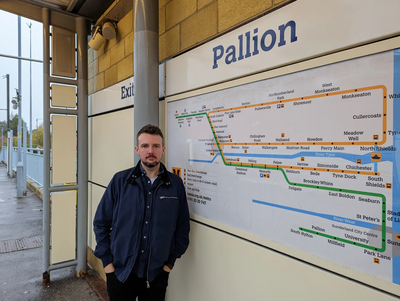Extend Metro £2 fare cap to paper tickets to avoid discrimination
Lib Dem councillors in Sunderland are calling for Nexus bosses to extend plans for a £2 Metro fare cap to apply to paper tickets - to avoid discriminating against people who don't use the internet or a smartphone.

Plans for a £2 single fare cap and a £4 cap for an all-day ticket on the Tyne and Wear Metro are set to be approved by councillors on the North East Joint Transport Committee's Tyne and Wear Sub Committee on 3rd November.
The plans, which would be in force from January to March 2023, will only apply to pay-as-you-go smartcards and not passengers using paper tickets - prompting concerns about discrimination against people who don't use the internet.
Lib Dem Sunderland City Councillor for Pallion and Ford Estate Martin Haswell said:
"Lots of people who don't have access to the internet or a smartphone to order and top up a pop card aren't going to be able to benefit from this scheme.
"It beggars belief that only those who are computer literate can access these price freezes at a time when people struggling to afford food and heat, never mind broadband bills, are going to be excluded. I also have concerns that older and vulnerable people in our communities who would likely benefit most from a fare cap this winter are the very people who are more likely to use paper tickets.
"Nexus bosses should urgently re-think their plan and apply this £2 fare cap to Metro passengers buying paper tickets. It is only fair that everyone benefits from this scheme during the cost of living emergency this winter."
